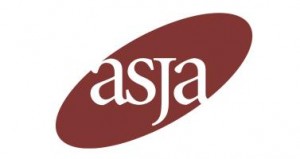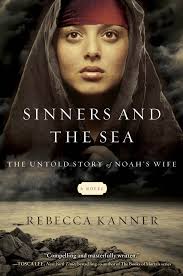Jewish Literary Links for Shabbat

Shabbat shalom.

Shabbat shalom.
Yesterday on the Virginia Quarterly Review‘s blog, as part of the current issue’s focus on “the business of literature”:
I doubt that Knopf/Random House planned it this way, but the publication of Sheryl Sandberg’s bestselling Lean In: Women, Work, and the Will to Lead coincided with the release of the latest VIDA Count. I suspect that Sandberg herself would be interested in the data that VIDA has provided regarding publication rates of women and men in what it calls “many of the writing world’s most respected literary outlets.” (Condensed findings: In most cases, women aren’t faring well in these venues.) Strikingly, some of Sandberg’s messages can be extrapolated beyond the worlds of leadership or corporate culture and applied to the world of poets, fiction writers, and essayists, perhaps especially as VIDA has described it.
You can read the rest of my essay over on VQRonline.
Starting today at 5 pm, I’ll be using some of my treasured paid vacation days (one of the best benefits of being a #writerwithadayjob) for a VACATION. Much of the time will be a “staycation” along the lines of last year’s break. And once again, I have a lot of plans. For starters, I’ll be spending several days at two conferences.
 First up: the annual conference of the American Society of Journalists and Authors (ASJA), which begins tomorrow here in New York. I’ve only attended this conference once before, about a decade ago. This time, I’m going as a full-fledged ASJA member. I’m hoping to pick up plenty of freelancing tips and inspiration.
First up: the annual conference of the American Society of Journalists and Authors (ASJA), which begins tomorrow here in New York. I’ve only attended this conference once before, about a decade ago. This time, I’m going as a full-fledged ASJA member. I’m hoping to pick up plenty of freelancing tips and inspiration.
And next week, I head up to Boston for one of the most reliably excellent events on my literary calendar: Grub Street’s The Muse and the Marketplace. For obvious reasons, I’m especially grateful for the opportunity to return to Boston now. And I’m looking forward to the panel that I’ll be moderating, “Grubbie Guide to Writing Contests, Conferences & Residencies,” which will feature Sheri Joseph and Doug Trevor. (We’re Session 8K, and a few seats remain, if you’re still in the process of registering.)
I’ve got some other fun things planned, too. But don’t worry–I plan to keep blogging throughout! And while I have yet to master the art of live-tweeting, I’ll do my best to keep you posted on site from #ASJA13 and #muse2013. (UPDATE: I think I erred! ASJA hashtag seems to be #ASJA2013)
These days, we attend more closely to the role of our biblical matriarchs. But while Sarah, Rebecca, Leah and Rachel occupy the spotlight, most of us haven’t thought much about another female antecedent: Noah’s wife.
As I mentioned here recently, Rebecca Kanner’s new novel, “Sinners and the Sea,” imagines the experiences of that woman. I recently had the opportunity to interview Kanner, who is based in Minneapolis, for The Forward‘s Sisterhood blog.
If you follow me on Goodreads, you know that not long ago, I was reading George Eliot’s Daniel Deronda.
Today’s edition of Jewish Ideas Daily features some reflections on that reading.
In the beginning, there was Theodor Herzl. Or so I thought. I have a Ph.D. in European history, but I have long been aware of the deficiencies in my knowledge of Jewish history and my Israel literacy. So when I discovered the opportunity to take a non-credit course on Zionism here in New York, I jumped at the chance.
Once enrolled, I learned just how much Zionist history there was before Herzl. Our initial sessions were devoted to a variety of Zionist forerunners and an extensive documentary legacy that anticipated Herzl’s visionary 1896 pamphlet, The Jewish State.
I was dutifully taking notes during our second class meeting when our professor mentioned another text that expressed Zionist sentiments well before Herzl took up his mission. But unlike the writings of Rabbis Yehuda Alkalai and Zvi Hirsch Kalischer, or those of Leon Pinsker and Ahad Ha’am, this text was written in English, and by a woman who wasn’t even Jewish. Somewhat surprisingly, it wasn’t a polemic or a pamphlet. It was a novel by George Eliot (the pen name of Mary Anne Evans), Daniel Deronda, published in 1876, 21 years before Herzl convened the First Zionist Congress.
To read the rest of my essay, please click here.